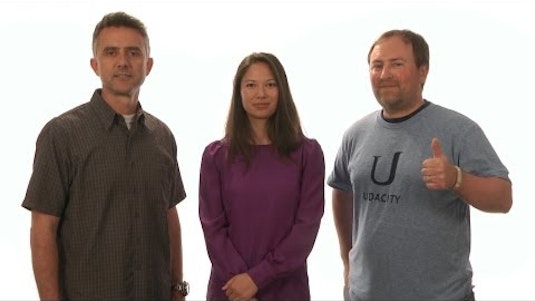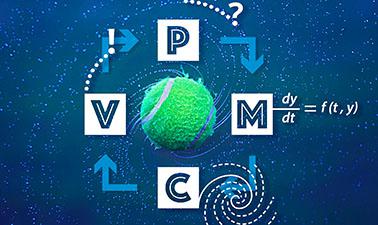
Description
Examine the importance of language in the teaching and learning of mathematics
On this four-week course from the University of Southern Queensland, you’ll explore how language and communication impact mathematical teaching and learning processes and develop practical strategies to improve your learners’ understanding of maths.
Explore the connection between effective communication, mathematical literacy, and numeracy
Mathematical language is complex and, as such, can lead to misunderstandings, with many students struggling to switch between everyday language and mathematical terminology.
You’ll learn how to use language appropriately, using technical terminology clearly and accurately.
Reflecting on your own students, you’ll explore strategies to successfully communicate complex ideas in a way that delivers an equitable experience for all learners in your classroom.
Dispel common misconceptions about algebra, geometry, probability, and statistics
Examining a different mathematical topic each week, you’ll consider why students find some concepts troublesome and how this can be addressed.
You’ll investigate various negative beliefs surrounding mathematics, and develop responses that stimulate engagement.
Learn how to explain mathematical concepts using real world applications
Excellent mathematics teachers have the ability to engage students, making the curriculum not only accessible, but relevant to everyday life.
You’ll discover how to contextualise your students’ learning by highlighting real life applications, helping them ground their understanding of new concepts in realistic terms.
You’ll finish this course with a deeper understanding of mathematical language and effective communication. You’ll be able to develop your own teaching strategies and communication skills to explain complex concepts and deliver engaging, relatable lesson content.
This course is designed for educators at secondary school level who want to improve their communication skills when teaching mathematical concepts.
It’s particularly suited to those new to teaching mathematics, including newly qualified teachers, or those considering a career in teaching.
To take part in this course, you will need a word processing program and a calculator.
Tags
Syllabus
- The role of communication in teaching maths
- Welcome
- Introduction to mathematics
- Understanding the connection between language and mathematics
- Teaching numbers and algebra
- Why do we need to understand algebra?
- Attitudes towards algebra
- Troublesome concepts in algebra
- Teaching measurement and geometry
- Why are measurement and geometry important?
- How do we teach and understand geometry?
- Troublesome concepts in measurement and geometry
- Teaching probability and statistics
- Understanding probability and statistics
- How do probability and statistics connect to the real world?
- Troublesome concepts in probability and statistics

Teaching Mathematics: Overcoming Miscommunication
-
TypeOnline Courses
-
ProviderFutureLearn
Examine the importance of language in the teaching and learning of mathematics
On this four-week course from the University of Southern Queensland, you’ll explore how language and communication impact mathematical teaching and learning processes and develop practical strategies to improve your learners’ understanding of maths.
Explore the connection between effective communication, mathematical literacy, and numeracy
Mathematical language is complex and, as such, can lead to misunderstandings, with many students struggling to switch between everyday language and mathematical terminology.
You’ll learn how to use language appropriately, using technical terminology clearly and accurately.
Reflecting on your own students, you’ll explore strategies to successfully communicate complex ideas in a way that delivers an equitable experience for all learners in your classroom.
Dispel common misconceptions about algebra, geometry, probability, and statistics
Examining a different mathematical topic each week, you’ll consider why students find some concepts troublesome and how this can be addressed.
You’ll investigate various negative beliefs surrounding mathematics, and develop responses that stimulate engagement.
Learn how to explain mathematical concepts using real world applications
Excellent mathematics teachers have the ability to engage students, making the curriculum not only accessible, but relevant to everyday life.
You’ll discover how to contextualise your students’ learning by highlighting real life applications, helping them ground their understanding of new concepts in realistic terms.
You’ll finish this course with a deeper understanding of mathematical language and effective communication. You’ll be able to develop your own teaching strategies and communication skills to explain complex concepts and deliver engaging, relatable lesson content.
This course is designed for educators at secondary school level who want to improve their communication skills when teaching mathematical concepts.
It’s particularly suited to those new to teaching mathematics, including newly qualified teachers, or those considering a career in teaching.
To take part in this course, you will need a word processing program and a calculator.
- The role of communication in teaching maths
- Welcome
- Introduction to mathematics
- Understanding the connection between language and mathematics
- Teaching numbers and algebra
- Why do we need to understand algebra?
- Attitudes towards algebra
- Troublesome concepts in algebra
- Teaching measurement and geometry
- Why are measurement and geometry important?
- How do we teach and understand geometry?
- Troublesome concepts in measurement and geometry
- Teaching probability and statistics
- Understanding probability and statistics
- How do probability and statistics connect to the real world?
- Troublesome concepts in probability and statistics
Related Courses


Recommender Systems: Behind the Screen

Математика в тестировании дискретных систем

Medical statistics

Statistics

STAT 800: Introduction to Applied Statistics

Комбинаторика для начинающих

Modelling with Differential Equations

Basic Statistics in Python (Correlations and T-tests)

Eigenvectors and Eigenvalues

Statistics in Education for Mere Mortals


 Online Courses
Online Courses  FutureLearn
FutureLearn
